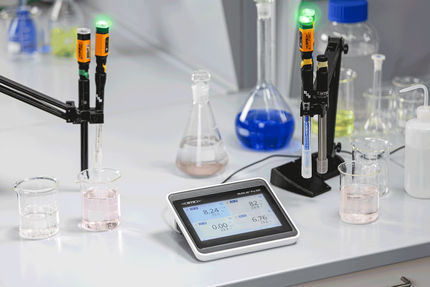To use all functions of this page, please activate cookies in your browser.
my.chemeurope.com
With an accout for my.chemeurope.com you can always see everything at a glance – and you can configure your own website and individual newsletter.
- My watch list
- My saved searches
- My saved topics
- My newsletter
Phar-Mor
Phar-Mor was a United States chain of discount drug stores, based in Youngstown, Ohio, and founded by Michael I. Monus (usually called Mickey Monus) and David S. Shapira in 1982. Some of its stores used the names Pharmhouse and Rx Place (purchased in the mid-1990s from the F.W. Woolworth Company). Low prices were advertised to bring in a large volume of sales with the slogan "Phar-Mor power buying gives you Phar-Mor buying power". Product highlightBankruptcyIn 1992, when the company had grown to over 300 stores and 25,000 employees, Monus and his CFO Patrick Finn were accused of embezzlement: they had allegedly hidden losses and moved about $10 million from Phar-Mor to the World Basketball League that Monus had founded. Based on deceptive data and inventory, Phar-Mor borrowed multi-millions from banks and similar institutions under the premise of financing its unusually rapid growth. In actuality, this infusion of cash was necessary to pay off suppliers. As a result, Phar-Mor had to file for bankruptcy protection, closed 55 stores and fired 5,000 employees. Finn testified against Monus and received 33 months in prison. Monus' first trial ended in a hung jury in 1994; he was convicted at the second trial on 109 federal counts, mostly related to fraud, and sentenced to 19 years and 7 months in federal prison. Prosecutors estimated that the total loss to all investors exceeded $1 billion. The sentence was appealed and later reduced to 11 years. Monus was fired from his position as COO of Phar-Mor. One friend of Monus later admitted to having offered a bribe to an acquaintance of his on the first trial's jury; the juror had not taken the money but confirmed the scheme. Monus was tried for jury tampering and acquitted. Several investors in Phar-Mor filed a civil suit against the company's auditors, Coopers & Lybrand. A jury decided in 1996 that the accountants committed common law and federal securities law fraud by falsely representing they had performed GAAS audits when in fact they had failed to do so. Phar-Mor emerged from bankruptcy protection in 1995, having lost two-thirds of its stores. It went out of business in 2002. Its Youngstown-area assets were purchased by Giant Eagle in bankruptcy court. Phar-Mor's philosophyPhar-Mor's business model was based on moving a huge quantity of merchandise with a very small profit margin. Many products were shipped via DSD (Direct Store Delivery), but some were shipped through Tamco warehouses, which Phar-Mor later purchased. References
|
||||||||||||||||||||||
| This article is licensed under the GNU Free Documentation License. It uses material from the Wikipedia article "Phar-Mor". A list of authors is available in Wikipedia. | ||||||||||||||||||||||







